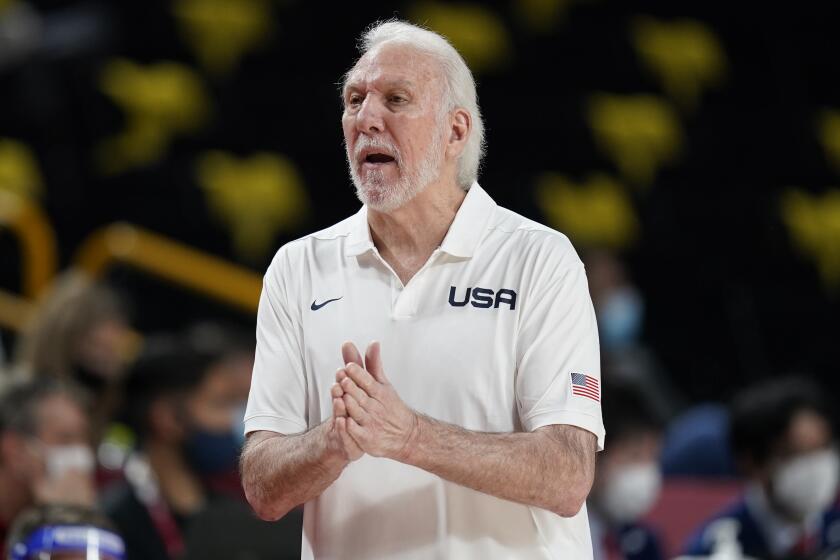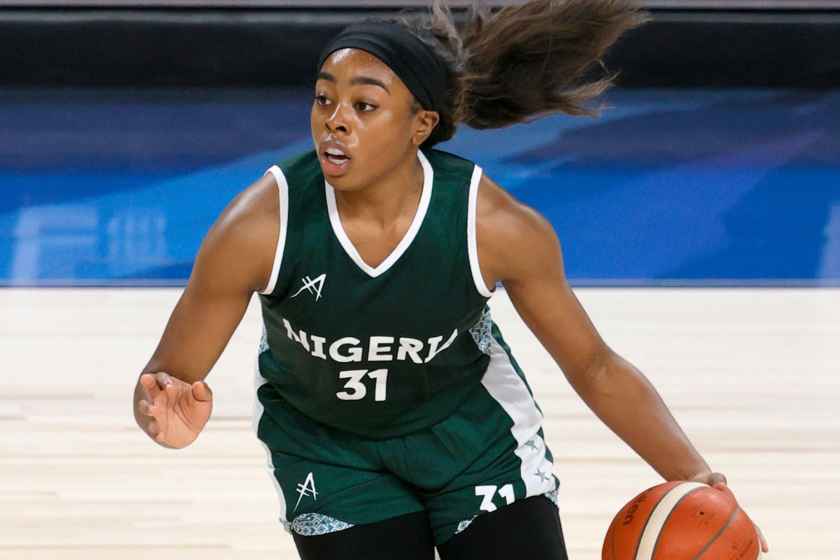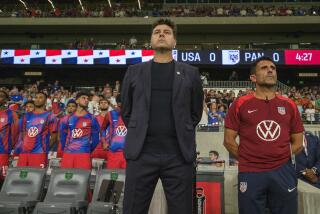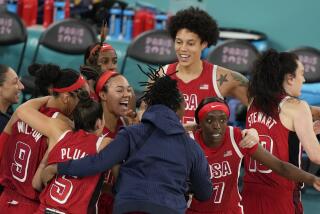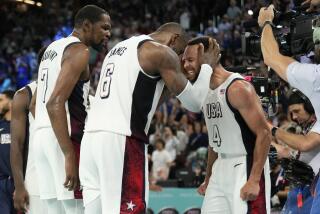U.S. men’s basketball team doesn’t disappoint in predictable win over Iran
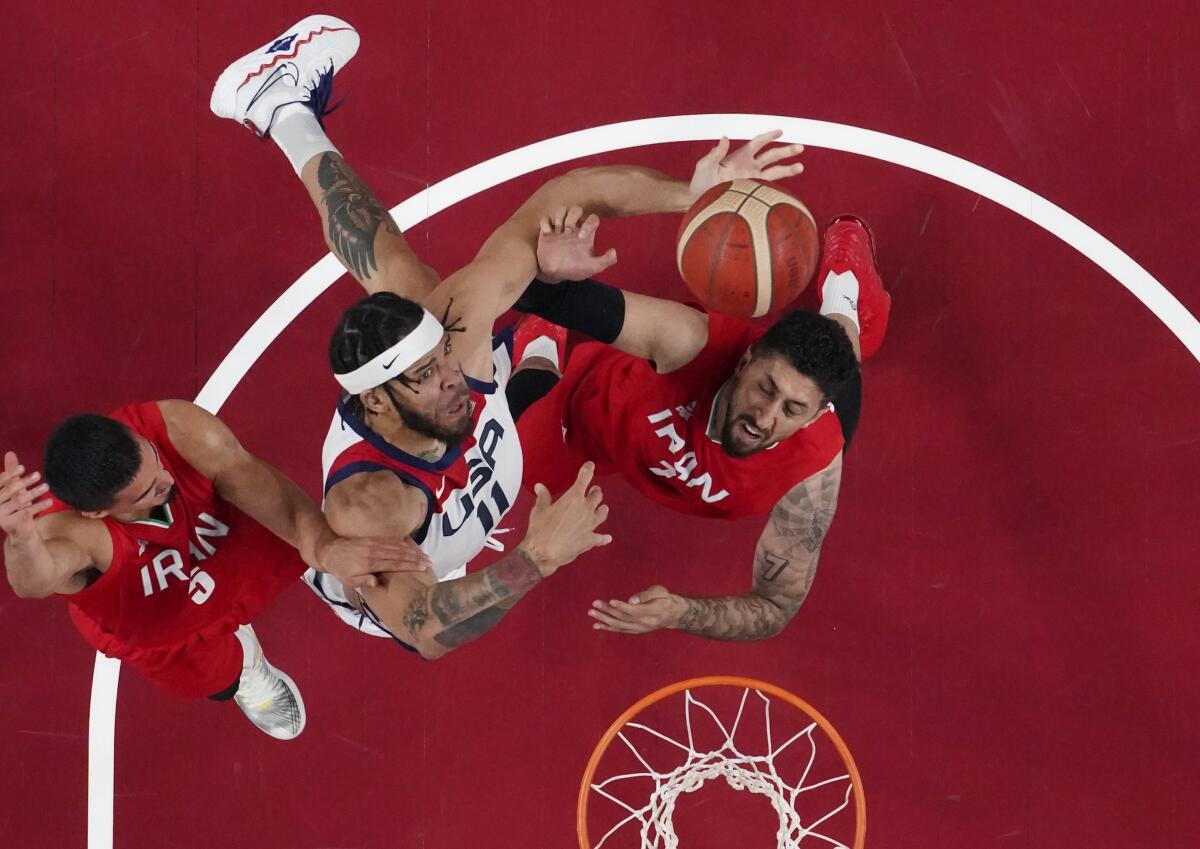
SAITAMA, Japan — An Olympic basketball game for the U.S. men’s team against Iran was almost certainly going to end in a very particular way. Bookmakers had the U.S. in the range of 40-point favorites against the Iranians, the lone team in the Olympic tournament without an active NBA player.
And for the first time these Games, the U.S. men’s team didn’t disappoint.
But along the way, they moved closer to a bigger achievement, taking steps to solve the question facing every U.S. basketball team when it enters international competition. How can this group of players learn to work together?
Gregg Popovich is one of sports’ most admired voices for his willingness to take a stand, but his words at the Tokyo Olympics fall short of accountable
“In a sense, everyone is kind of a role player now,” U.S. coach Gregg Popovich said. “We don’t need heroes.”
But this roster has been full of them since NBA players started competing in 1996.
Accomplishing that with a team full of lead scorers is the biggest on-court issue facing this (and all) U.S. teams loaded with NBA stars. In their 120-66 win Wednesday afternoon, they looked more in tune with that goal.
You could see it early, the team firing the ball around the court, passing up a good shot for a very good one for an even better one until the ball found Kevin Durant wide open in front of his bench. As he released the ball, the Americans cheered, the volume building in anticipation until it topped out when the ball went in the hoop.
It was beautiful basketball, one of 34 assists on the team’s 42 made baskets.
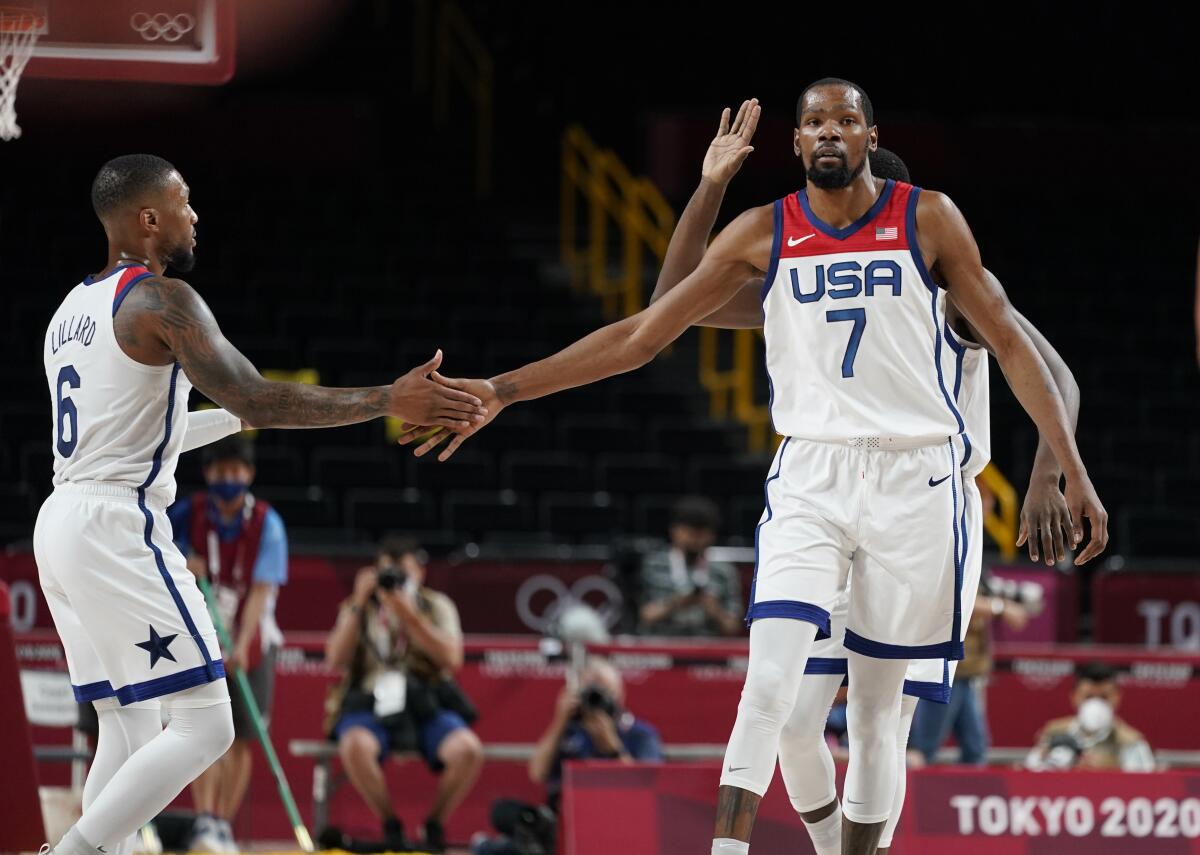
Certainly, making shots helps — in the aftermath of the victory, Durant wanted to make that clear. But he also said he saw encouraging signs of comfortability with his teammates as they try and adjust to life as part of a machine and not just be the engine.
“It was a good step,” Durant said.
It’s a line the Americans are going to have work all tournament, figuring out ways to keep players engaged and in rhythm — asking them to be themselves but to maybe do it in smaller chunks.
It’s a message that Draymond Green made sure to share with Damian Lillard after the Portland star struggled in his debut, trying too hard to be a good teammate at the sacrifice of his confidence and rhythm.
For Erica Ogwumike, playing in the Olympics alongside her sister is a dream come true, but she also sees a future outside of basketball.
“Damian Lillard doesn’t hesitate to shoot the ball, especially at the end of the game,” Green told his teammate after the Americans were upset by France. So Lillard started the game by taking seven threes in the first quarter (he made three). He’d go on to lead the team with 21 points.
Wednesday it was his turn. Saturday against the Czech Republic it could be Devin Booker. Or Durant. Or Khris Middleton. Or Jrue Holiday.
And when players confidently attack the game without fear of stepping on anyone’s toes, the U.S. can look like they did against Iran.
“I think it’s more of being who you are and just trusting the fact you know, our teammates understand that we’re just being honest. It’s not a selfish act,” Lillard said. “And I think everybody was worried about not wanting to look selfish or look like they’re not throwing themselves into the team. … I think we are starting to figure out, you know, that being ourselves and doing what we do is what’s going to work for us.”
More to Read
Go beyond the scoreboard
Get the latest on L.A.'s teams in the daily Sports Report newsletter.
You may occasionally receive promotional content from the Los Angeles Times.

